Russia is no longer a great power – but it wants to be
What Putin is after is a new Yalta, a treaty where Russia, the US and China carve up the world into spheres of interests, as Britain, the US and the Soviet Union did with Europe in 1945.
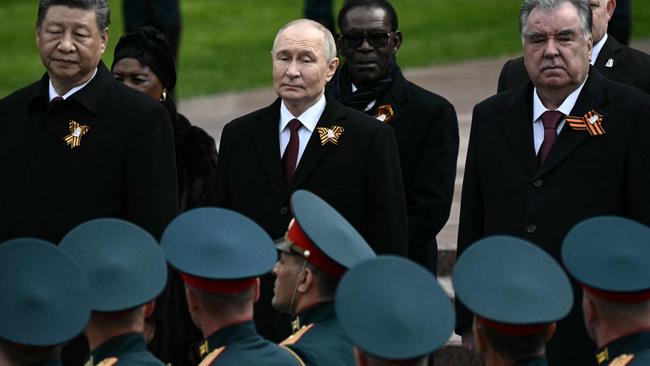
Russia is no longer a great power. But it wants to be. These two sentences encapsulate the root cause of Russia’s ongoing war of aggression against Ukraine. They also point to the difficulties the outside world faces with helping to end this war.
Great power status is not some inherent quality of a country or a people. It is a status to be earned and maintained. It rests to a significant extent on objective factors: a productive economy, national wealth, military power, a robust population.
But it also rests on less objective factors, not least prestige. Great powers are those that are recognised as such by others. Great powers are those that are respected: for their achievements, their culture, their might.
Russia used to be a great power in certain moments of its history: when it took a leading role in the defeat of Napoleon Bonaparte in 1814, for example, and then danced, dined and talked at the Congress of Vienna, helping decide the future of Europe; when, reconstituted as the Soviet Union, it won the war in Europe and hoisted the Red Flag over the Reichstag in 1945; and even when in 1968, together with its European allies, it rolled into Czechoslovakia, ending the Prague Spring and exposing US support for democracy in eastern Europe for what it was: hot air.
In other moments, Russia was no great power: in 1917, for example, when it disintegrated under the strains of World War I; in 1918-19, when a beleaguered and hungry Bolshevik state shrunk to the Russian heartland around Moscow; or in the mid-1920s, when the country struggled to re-industrialise after the destruction of wars and revolution.
It was not a great power in the late 1980s, either, when the economy collapsed before the empire did in 1991. What followed was even worse, an economic catastrophe undone only by the early 2000s.
Today, Russia is not a great power by any objective standard. It still remains the largest country in the world with the ninth largest population in 2023 (larger than Mexico’s, smaller than Bangladesh’s). But the value of its economy, according to World Bank data, was only at 11th place in 2023.
Russia’s GDP was a little smaller than that of Canada, Brazil and Italy, and only slightly bigger than that of Mexico, Australia or South Korea: a respectable middling power, no more.
France’s output was 1½ times Russia’s; Japan’s or Germany’s was more than twice its size. So much for other middle powers.
China, undoubtedly a great, maybe a “super” power, outproduced Russia by a factor of close to nine, and the US by a factor approaching 14.
In terms of GDP per capita, Russia found itself very far down the list, in a league with Nauru, Turkey, Mexico or Kazakhstan. Per head of the population, Australia produced nearly 36 times as much economic value as did Russia. This wealth discrepancy was also reflected in life expectancy at birth, which in Russia stood at 73 years, on par with its neighbour Ukraine but also countries such as Bhutan, Tonga, Honduras or Guatemala.
Meanwhile in Australia, Sweden, Norway, Ireland, Iceland, Israel, Kuwait, the United Arab Emirates or South Korea, the equivalent number was 83 years.
Militarily, despite its serious attention to rearmament, its large military and huge productive capacity, Russia did not perform like a great power.
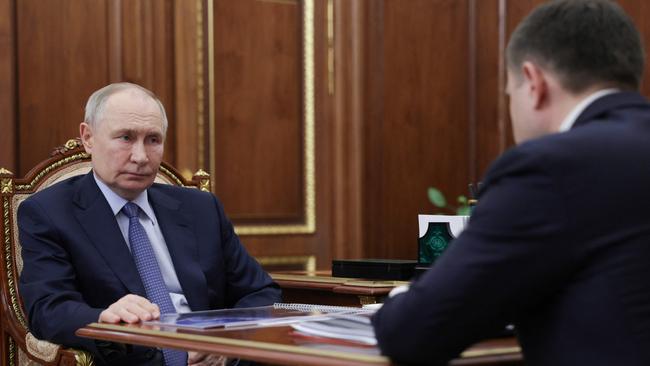
After more than three years of fighting against a much smaller country with a population about a quarter of Russia’s and a GDP of only 9 per cent of the invader’s, Vladimir Putin’s troops control less than 20 per cent of Ukraine. At the current rate of advance, which indeed has been slowing, it will take Russia 83 years to take the rest of the country, according to calculations by the independent Institute for the Study of War.
What about prestige? The recent celebrations of 80 years victory over Nazi Germany – the Soviet Union’s greatest achievement in its 7½ decades of existence – was attended by heads of state of Armenia, Azerbaijan, Belarus, Bosnia and Herzegovina, Brazil, Burkina Faso, China, Congo, Cuba, Egypt, Equatorial Guinea, Ethiopia, Guinea-Bissau, Kazakhstan, Kyrgyzstan, Laos, Mongolia, Myanmar, Slovakia, Serbia, Tajikistan, Turkmenistan, Uzbekistan, Venezuela, Vietnam and Zimbabwe. North Korea sent a military delegation. China sent troops to parade alongside Putin’s.
This list shows who still thinks Russia a great power: many in the global south who remember the Soviet commitment to decolonisation and economic and military aid during the Cold War. And autocrats and would-be strongmen of various shades who recognise a co-conspirator in their quest to make the world safe for dictatorship. Most prominent among the visitors was Chinese President Xi Jinping. While a US attendance would have been better from Moscow’s point of view, the optics were improved over 2024 when only nine heads of state attended.
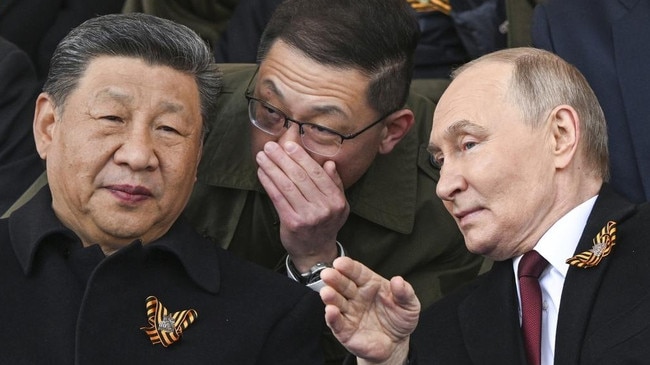
The images of Putin and Xi sitting next to each other, in close conversation, however, could be read in two ways: Russia was China’s equal (a statement nobody believes in any seriousness); or Russia had become China’s lieutenant, doing the dirty work of probing the resilience of the liberal world order. Meanwhile, Beijing sits back, enjoys the view and moves only at an appropriate time.
While the relationship with China will cause mixed feelings in the Kremlin, the relationship with the US is promising for the desired state of great power prestige.
The recent phone conversation, more than two hours long, with US President Donald Trump and the absence of any response when Putin refused to “make a deal” also would have signalled to the Russian President that he is on the right path: Russia is still in the concert of the greats. It can do what it wants. And Putin does not want a deal, a ceasefire, let alone peace. What he wants, instead, is great power status for his country. And a place in the history books for himself, along other “great” imperial statesmen: Peter I, Nicholas I or Joseph Stalin.
That Russia cannot afford to be a great power does not mean that it can’t cause a lot of damage while trying. This is exactly what it does at the moment.
Could one appease Russia by giving in to its cravings for great power prestige? Not without serious consequences.
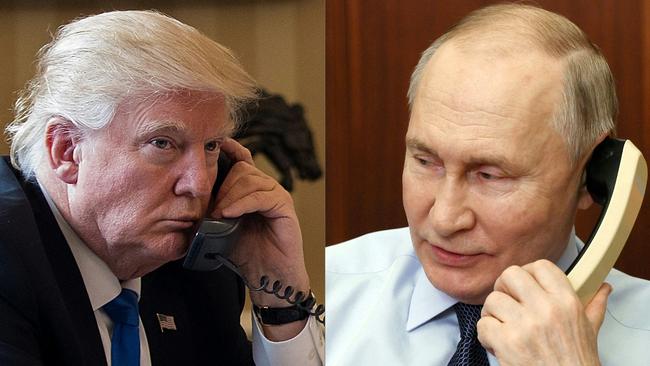
What today’s Russia wants is not some reasonable symbolic recognition of the largest country in the world with a long history, a beautiful language, a unique form of Christianity and an interesting literary tradition. What Russia wants is the removal of what Putin calls the root cause of this war: an independent, democratic Ukraine, armed for self-defence and oriented towards the democratic world in Europe and beyond.
But this would be only the start. What Putin is after is a new Yalta, a treaty where Russia, the US and China carve up the world into spheres of interests, as Britain, the US and the Soviet Union did with Europe in the Crimean spa town in 1945. Imagine in which sphere Australia would fall in such a neo-imperial world order.
What, then, is to be done? The hope of stopping this war within 24 hours if Trump just picked up the phone was always ridiculous. The inept diplomacy of the US administration between the 25th hour and the phone conversation of this week has only further aggravated the situation.
Putin knows he can go on sweet-talking his US counterpart while waiting for the spring muds to dry up for the summer fighting season. His regime is stable, overt support by North Korea and Iran continues, as does not-so-covert co-operation by China. The economy is on a wartime footing and many across the social spectrum benefit from the overheated activity. Inflation is a worry, but nowhere near what Russia experienced in the 1990s.
Commentators who bank on the notion that “this cannot go on forever” seem to have forgotten that the Soviet economy was in serious trouble for decades and both the regime and the people muddled on. Putin is confident he can wait out the democracies. They will lose interest, make deals and throw Ukraine under the bus.
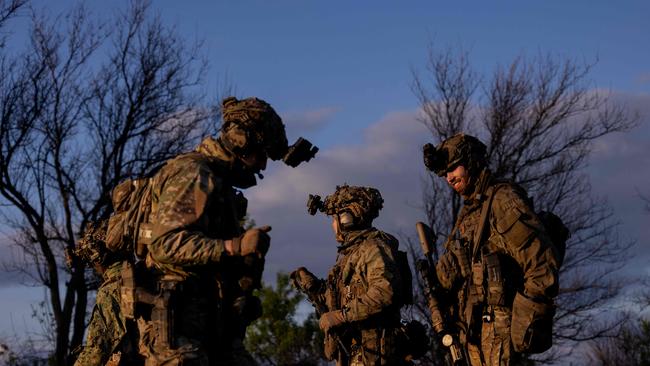
Europe and Britain, meanwhile, reacted to Putin’s refusal to sign up to a ceasefire with a new round of sanctions. Ukraine is pushing for more.
These are important symbolically but they are unlikely to stop the war. Russia has found ways around trade restrictions before and it will do so again, with the help of its friends big and small.
There is little historical evidence that sanctions have the desired effect anyway. A comprehensive study of 300 years of evidence by economic historians Stephen Broadberry and Mark Harrison, published earlier this year, demonstrated that “sanctions worked most effectively when complemented by fighting power”. Without such military backup, they were usually blunted by adaptation.
Yes, Russia may get into trouble if the oil prices crash even more, but a real crisis will ensue only once the world has decarbonised its economy and no longer is in need of oil and gas. For the time being, it is. And Russia was producing nearly 13 per cent of the world’s crude, at third place after the US and Saudi Arabia, in 2022.
The sad reality is that Russia cannot be stopped with non-military means. The only way to end this war is to arm Ukraine sufficiently so it can arrest the slow grind of the Russian steamroller, fortify the lines of defence enough that the adversary can’t advance any further, and defend its skies against Russian drones and missiles. Once that is achieved, the country needs to be rebuilt, both physically and economically. The task will be enormous.
Infrastructure, housing and factories will need to be reconstructed or repaired, farmers’ fields cleared of mines, new elections held, millions of refugees repatriated, veterans demobilised and reintegrated into civilian life and the fight against corruption renewed.
Friends of Ukraine’s democracy will need to figure out how to provide the necessary support on the assumption that Trump’s America may walk away sooner or later. A global coalition of the willing needs to be assembled to aid Ukraine, both militarily and economically. It may well become the nucleus of a new alliance of middle and smaller powers, such as Australia, to dam the rising tide of dictatorship but also counter the weight of the two remaining superpowers: China and the US.
Australia, a trading country whose prosperity depends on a world where international treaties are honoured, the seas and the skies are safe, borders are stable and militaries exist for self-defence, not imperial conquest, has an interest in playing a leading role in this process.
Mark Edele is a historian of the Soviet Union and its successor states, in particular Russia. He is Hansen professor in history at the University of Melbourne. His latest book is Russia’s War Against Ukraine: The Whole Story (Melbourne University Press, 2023).


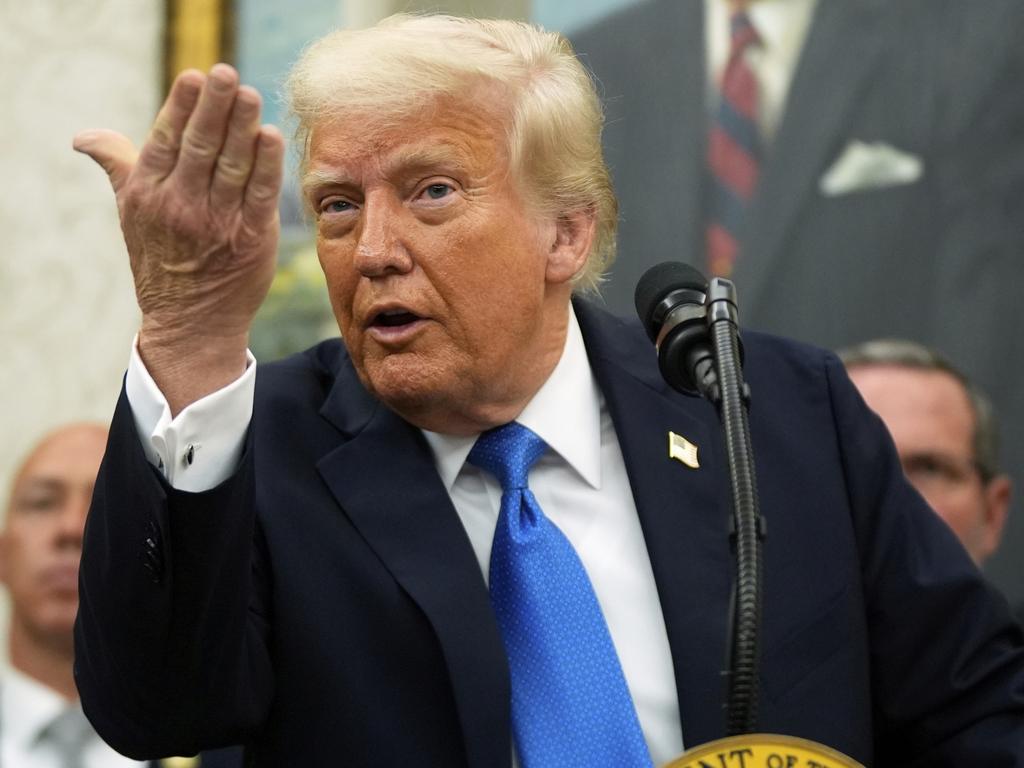



To join the conversation, please log in. Don't have an account? Register
Join the conversation, you are commenting as Logout